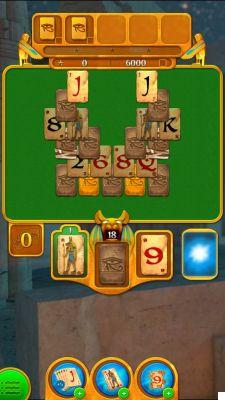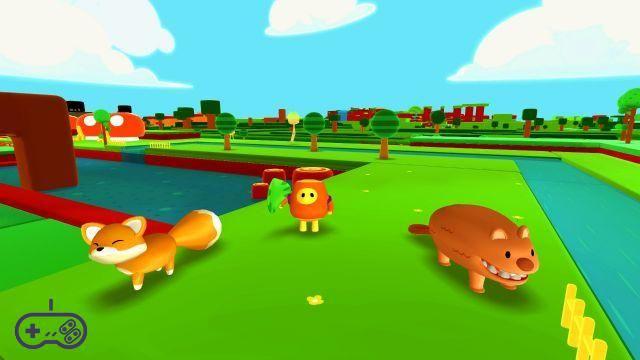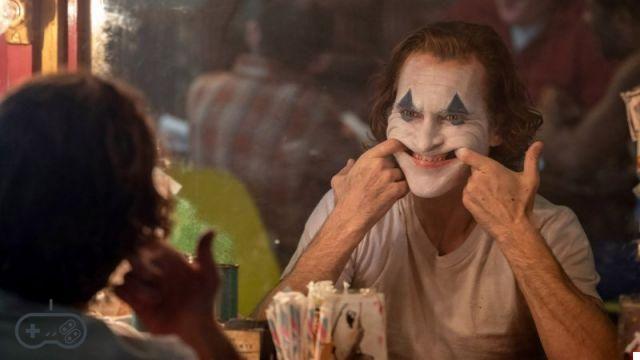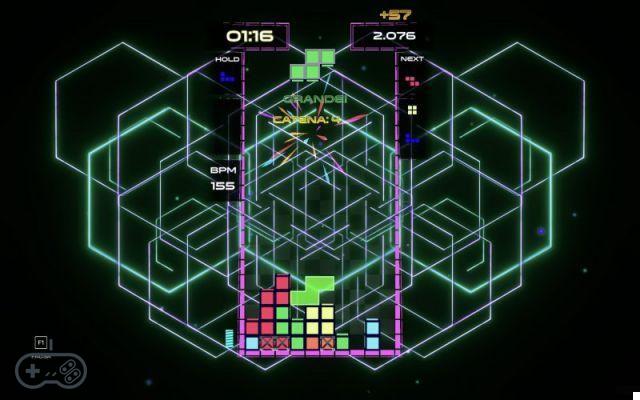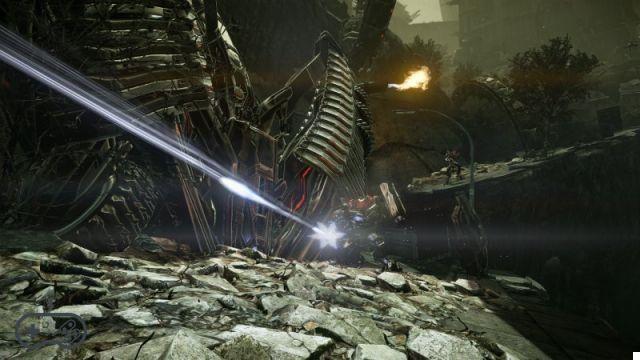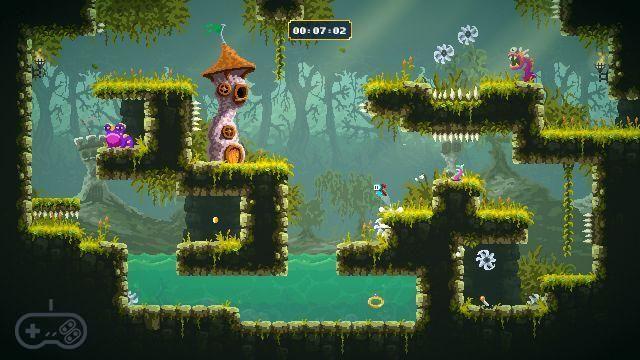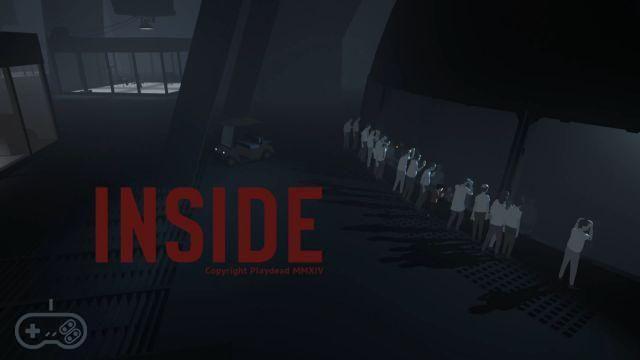Try for a moment to imagine being able to take the form of any thing or entity known to us and living in a condition of harmony with the surrounding space. Also think of losing sight of the concept of separation between individuals, as we traditionally understand it, embracing an interconnected worldview where one is never disconnected from the whole, and vice versa.

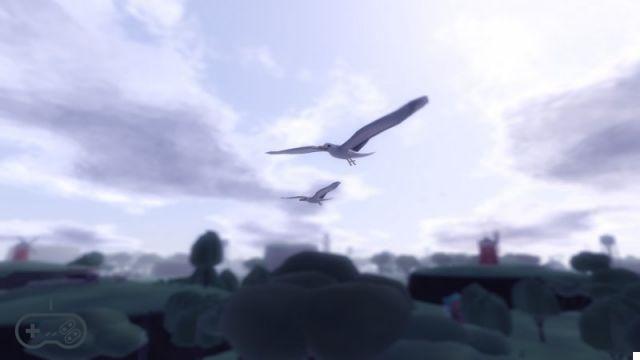
If you have never heard of Everything, these few introductory lines should be enough to make you understand that we are not in the presence of a video game in the traditional sense of the term, but rather an unconventional experience in which the user can get in control of everything. what exists, without being limited to a single order of magnitude. Everything offers us the opportunity to become a vegetable, an animal, a house, a stone, embrace an entire continent, a planet or even a galaxy, and we could go on and on. It all depends on the player's choices, on his propensities and on the way in which he intends to get in touch with an extremely liquid reality, where the urgency of the existential question is marked by lucid and fascinating philosophical reflections. As the official description goes, Everything takes the viewer by the hand and urges them to "produce an endless documentary about the world you live in". Presented last year, on the occasion of the Game Developers Conference in San Francisco, the project was born from an idea - but perhaps we could speak of a systematic study - of the artist David O'Reilly. It is likely that this name does not tell you anything, but O'Reilly has already become the protagonist of another sui generis simulator called Mountain, a radical contemplative experiment in homage to oriental meditation. O'Reilly himself defined his new work a "simulator of consciences" and if at first sight it may seem a strange definition, it is precisely when you take the pad in your hands that this meaning receives confirmation. All in all, it could be said that the existential approach that arose with Mountain was raised to the cube to confront us with a structured interpretation of the cosmos in relation to individual consciousness, delimited by a philosophical substratum that reveals itself one step at a time, marking the exploration of stylized scenarios, full of surprises and with their own rules. Here because, in order to justify the experience and offer a key to understanding the whole, O'Reilly relied on the reflections advocated by Alan Watts, a twentieth-century English philosopher who dedicated his life to the study of Buddhism and Zen thought. Moreover, these same concepts had already been explored in the short film The External World, presented in 2011 at the Venice Film Fair and in turn inspired by existential themes.
Everything is the new work of artist David O'Reilly and is a tribute to the mysteries of the cosmos
PlayStation 4 Trophies
The Everything Trophies are 35 and must be unlocked through exploration. Often there are no precise indications on what to do, so you have to work intuitively.
Ascent and descent in the eternal flow of the cosmos
The opening of the work is alienating, it takes control of a small particle that is traveling in an indefinite space. Some existential questions appear on the screen, when suddenly the light becomes more intense and we find ourselves projected in the role of a polar bear, within a snowy scenario shared with numerous other creatures. The playful approach becomes even more particular as soon as one realizes that these entities do not walk normally, as might be expected, but roll rigidly on the ground as if they were static images. Leaving aside this detail, to which we will return later, we can begin to become familiar with the surrounding context, through a multitude of shared activities. For example, it is possible to make sounds, but you can also gather in a pack, dance with your fellowmen and communicate with inanimate objects. The experience lived in Everything is based above all on two crucial concepts: the Ascent and the Descent. As we said at the beginning, it is possible to move by acquiring the perspective of anything present in the game world and to do so it is necessary to translate into a different entity. By choosing to ascend one assumes control of a subject (or object) of larger dimensions, while by choosing to descend one can come into contact with smaller, even infinitesimal realities. Thereby a dimensional journey is established that embraces all of creation, placing in close correlation both the materials and the creatures visible in front of one's eyes, from the smallest elementary particle to the cosmic majesty represented by galaxies and nebulae.


This form of interaction is therefore marked by the search for all those entities that have not yet taken on their clothes and for those occasional dialogues that are suggested by the observation of the surrounding environment. Precisely in these situations you have access to brief philosophical dissertations by Alan Watts, available from time to time in the form of an audio track. The type of narration that the user is able to trigger during his journey is probably the most interesting factor of the experiment, it gives a pleasant sensation of investigation and stimulates reflection on more general issues related to the common feeling of individuals, constantly looking for an identity and a place of its own in the world. At the same time, we exhort the abandonment of the rational convictions that we have become accustomed to, to assume instead new points of reference. Only by freeing oneself from the constraints and static conditions of one's existence is it possible to ideally take flight towards something new. A significant part of the thought advocated by Watts here originates from the distinction between the concept of self and the idea of "other", a conceptual barrier that would prevent the individual from placing himself in a much broader and more harmonious context. Hence the metaphor of the ascent, or descent, which is precisely suggested by the gameplay. It is all a matter of perspective, which finds its maximum expression in the pleasure of travel and discovery. Moreover, we cannot avoid pointing out that the aforementioned recordings require a sufficient knowledge of the English language - and even some rudiments of philosophy certainly do not hurt - since the work has not been localized in Spanish. The existential approach is also expressed in the tones of the soundtrack, composed by the German author Ben Luka Boysen. The traces are always very delicate, aimed at outlining the wonder one feels at each new discovery, but also that sense of investigation mixed with melancholy that everything has in common with O'Reilly's previous works. Moreover, despite the presence of very interesting and completely unconventional ideas, in some moments the work seems to get lost on the road and there is a lack of an underlying purpose that, in some way, supports the playful system when the surprise is over. Undoubtedly Watts's dissertations help to contextualize what happens before our eyes and to give it a thematic coherence, nevertheless the title is also affected by a rather questionable artistic realization, which afflicts the stylistic care of the settings. The shy colors, the unlikely movements of some creatures, and the scarce landscape richness make Everything less captivating than it could have been, and it's a shame because ideas are not lacking at all.
Comment
Resources4Gaming.com7.0
Readers (8)8.1
Your voteEverything is a very special adventure and for this reason it does not suit the common player. With his reflections on the very nature of life and the conception of the space that surrounds us, he tries to stimulate the user by making him experience an interaction completely unrelated to traditional experiences. The universe represented is outlined as an articulated ecosystem, where the rigid division into categories and the horizontality of the experience are replaced by freedom of expression and a sense of verticality, or rather of cyclicality, useful to outline it as a being living, of a complex but unique nature. Unfortunately, the quality of the topics dealt with does not correspond to an equally effective overall realization of the work, on more than one occasion limited by its structure and by the absence of a concrete purpose that somehow strengthens the playful component. Even with these limitations, we would like to recommend Everything to anyone who appreciates the analysis of philosophical issues and who is looking for a journey completely detached from established schemes.
PRO
- Fascinating concept
- Infused with philosophical themes
- Relaxing to enjoy
- Emphasize the importance of travel ...
- ... but, playfully speaking, there is an absence of a final purpose
- It would have deserved a more captivating artistic realization
- It will leave many players baffled






